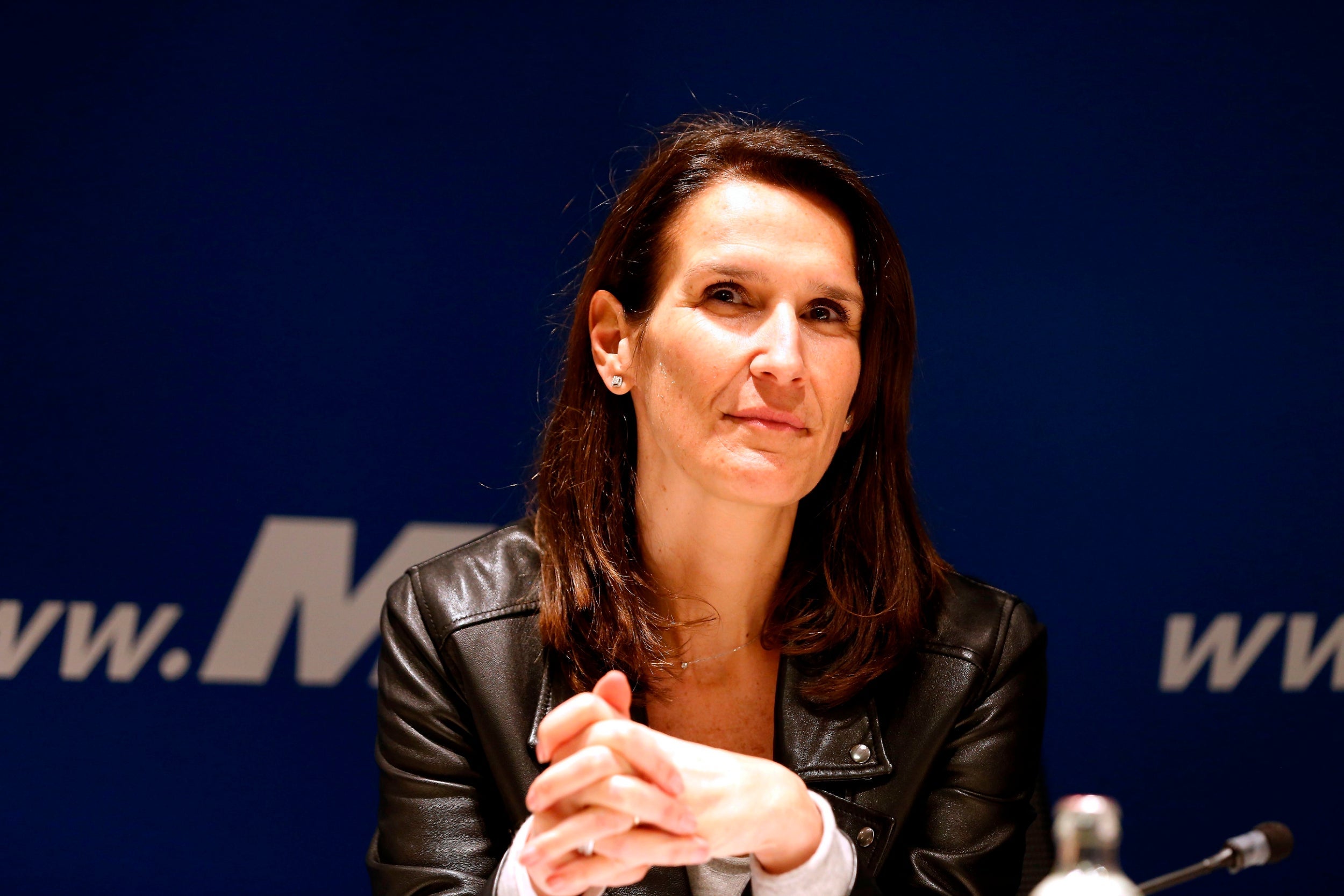Your support helps us to tell the story
From reproductive rights to climate change to Big Tech, The Independent is on the ground when the story is developing. Whether it's investigating the financials of Elon Musk's pro-Trump PAC or producing our latest documentary, 'The A Word', which shines a light on the American women fighting for reproductive rights, we know how important it is to parse out the facts from the messaging.
At such a critical moment in US history, we need reporters on the ground. Your donation allows us to keep sending journalists to speak to both sides of the story.
The Independent is trusted by Americans across the entire political spectrum. And unlike many other quality news outlets, we choose not to lock Americans out of our reporting and analysis with paywalls. We believe quality journalism should be available to everyone, paid for by those who can afford it.
Your support makes all the difference.Belgium’s king has appointed Sophie Wilmes as the country’s new prime minister, making her the first woman to hold the office.
Ms Wilmes, a centre-right liberal from the country’s French-speaking community, replaces Charles Michel at the head of the country’s caretaker government.
Belgium has not had a full federal government since Mr Michel’s coalition collapsed in December 2018. The outgoing prime minister now is moving to be president of the European Council, replacing Donald Tusk.
Elections were held for the Belgian federal parliament in May, but the results of the contest did not produce an obvious government and the country’s parties have been characteristically slow to come to an agreement on who should take office.
In Dutch-speaking Flanders, far-right separatist party Vlaams Belang surged at the expense of more moderate right-wing parties. Meanwhile, greens and leftists made gains in the country’s French-speaking region of Wallonia – making a coalition that includes both main regions difficult.
Power is highly devolved in Belgium and the regions of Flanders, Wallonia, and the separately administered Brussels capital region have managed to form their own governments in recent months, despite difficulties of their own.
While progress in forming a new federal administration has been slow, the current process has not yet bested Belgium’s 2010 record of taking 541 days to form a government.
Ms Wilmes, 44, is no stranger to working across language borders: she started her political career as a local councillor in Sint-Genesius-Rode (Rhode Saint-Genèse). The municipality is notable for being in Dutch-speaking Flanders but having a large French-speaking minority population, making it a flashpoint for the country’s highly charged language politics.

Join our commenting forum
Join thought-provoking conversations, follow other Independent readers and see their replies
Comments